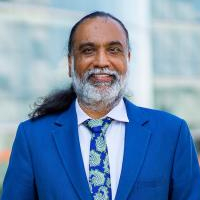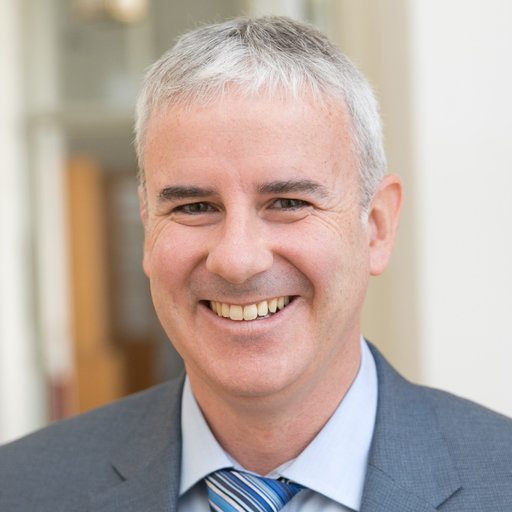Event summary
This event is part of a series of dialogues titled “From Geneva: Reflections on digital future”. This panel discussion was facilitated by the Geneva Internet Platform (GIP) in partnership with the European Union (EU) Delegation to the United Nations (UN) in Geneva, the Permanent Mission of Switzerland to the UN in Geneva, the Permanent Mission of Slovenia to the UN in Geneva, and the International Research Centre for Artificial Intelligence under the auspices of UNESCO (IRCAI).
Abstract
In their beginning phase, health technologies were costly and complex to implement. However, as computing platforms have become more powerful and connectivity platforms have become more accessible, the healthcare sector has been adopting a rising number of technologies, including AI-powered systems. During the COVID-19 pandemic, AI has been employed to surveil the outbreak of the different variants across the globe, while healthcare workers have been assisted by various AI-powered technologies in their diagnoses, screenings, and clinical care. Meanwhile, innovations like smartwatches are allowing people to better control their own healthcare. However, the increased use of technologies in health can also pose a serious threat on our society: The mentioned threats include issues revolving around data privacy, inclusiveness, accountability, cybersecurity, and intellectual property.
To discuss how we can best harness the power of AI, whilst aiming to minimize these threats, a multi-disciplinary range of experts has been invited to the roundtable. Moderated by Tereza Hořejšová (Director for Projects and Partnerships at Diplo), the panel discussion was joined by:
- Amandeep Singh Gill: CEO and Director at International Digital Health & AI Research Collaborative (I-DAIR)
- Vida Groznik: Researcher at University of Ljubljana, Assistant Professor at University of Primorska & CEO at NEUS Diagnostics
- Catherine Holloway: Professor and Academic Director at Global Disability Innovation Hub (GDI Hub) at University College London (UCL) & Programme Committee Chair in AI and Assistive Technologies at International Research Centre on Artificial Intelligence (IRCAI)
- Andreas Alois Reis: Co-Lead at Global Health Ethics Team, Division of the Chief Scientist at World Health Organization (WHO)
- Ulrike Till: Director for IP & Frontier Technologies at World Intellectual Property Organization (WIPO)
Key points
Powers of AI in health
The use of artificial intelligence (AI) presents healthcare workers with a whole set of opportunities which motivate a rising number of healthcare departments to adopt AI-powered technologies in their daily business. As pointed out by Amandeep, unprecedented levels of investment and attention are currently pouring into the digital health domain. Especially during the COVID-19 pandemic, communities have acquainted themselves with different facets of digital health, including telemedicine, as noted by Amandeep: By consulting patients via video-conferencing tools, doctors have managed to bridge the gap in access to health services to various communities. Andreas accentuates that many health departments are resource-intensive, such as mental health which requires a high number of psychiatrists that clients can talk to - who often lack. Digital health and AI-aided technologies can fill this gap, for example through the use of chat boxes. Vida inserts that such technologies already exist, an example being chatbots that aim to identify whether a person suffers from depression.
Amandeep also identifies the rise of AI for public health response: In fact, AI is nowadays being widely used to estimate the spread of pandemics like COVID-19 and their associated burden on the health system. Data sharing platforms like GISAID have provided researchers with a quick and open access to pandemic virus data, helping them understand how viruses evolve and spread across the globe. Thereby, the digital sharing of genomic sequences allowed researchers to pursue a highly data-driven drug discovery prior to the rollout of COVID-19 vaccines.
However, like with many other technologies, the opportunities that arise from AI-aided health are directly linked with a series of risks revolving around data protection, inclusiveness and equity, as well as basic patient safety and cybersecurity.
Securing data protection and privacy
As pointed out by Vida, not only data retrieved during hospital treatments is relevant health data. Health data is also being gathered from individuals as they make use of their smartwatches or smartphones. Catherine adds that not all relevant data is health data either: Banks, for example, will oftentimes know “about your health situation before anybody else does”, Catherine notes, “as it will freeze your account and inform the health representative right away”. Andreas thereby accentuates that data on patients’ health issues should remain confidential as those often tend to be highly stigmatized. Thus, any data put into technologies like chat boxes should be highly protected from further use. He adds that health technologies often involve stakeholders across national borders, meaning that any such data privacy regulation should be harmonized on an international level.
Securing inclusiveness and equity
Another challenge mentioned by various panelists is to ensure that all communities benefit equally from the rapid developments in the field of digital health. Andreas underlines that there is a notorious digital divide across different countries but also within countries, engendering vast disparities in terms of access to digital health services across the population. Thus, while telemedicine can, for example, bridge the gap in access to health services to some communities, others can be deprived from such innovations. Moreover, the mainstreaming of health technologies also requires high digital literacy rates among healthcare workers. Therefore, as health technologies are being developed, healthcare workers across the globe should be trained to use them.
“It is important to be inclusive in the data collection as well as in the design of these [health] technologies, so we include vulnerable groups and individuals.” (Andreas Alois Reis on potential for discrimination in health technologies)
Moreover, several panelists accentuate that we should aim to design health technology such that it reflects the largest possible variety of socio-economic and healthcare settings. AI systems are often trained primarily on data collected from individuals in higher-income countries, conducing to the fact that the technologies do not perform as well for individual in lower-income settings. Amandeep stresses the importance of including more researchers from the Global South in the R&D behind the health technology innovation. He adds: “We would have to find new ways of empowering patients and those who contribute the data, such that they get visibility into the knowledge making and the value derived from that data.”
“We would have to find new ways of empowering patients and those who contribute the data, such that they get visibility into the knowledge making and the value derived from that data.” (Amandeep Singh Gill on importance of egalitarian health data & knowledge making)
Catherine adds that the mainstreaming of telemedicine also risks to undermine the inclusion of hearing- and visually-impaired individuals, as AI-aided technologies often fail to communicate medical information with them. She accentuates that, instead, it is important to “make sure that these technologies bring societies closer together”.
“Will the divisions become wider? I think it's imperative on us not to let that be the case. It is important to make sure that these technologies bring societies closer together.” (Catherine Holloway on frontier technologies and social disparities)
Securing mechanisms for intellectual property, accountability, and cybersecurity
As indicated by Ulrike, health technologies are increasingly pushing the boundaries of technological capabilities in the health sector. Nowadays, frontier technologies are operating at the intersection of scientific breakthrough and real-life implementation, challenging policymakers to implement adequate intellectual property rights. Ulrike stresses that intellectual property should be made “accessible, understandable and explainable to the widest set of people”, to lay the groundwork for a “huge wave of innovation”. However, a positive interplay must be ensured between the measures promoting innovation and those that ensure access to vital medical technologies.
“The biggest challenge that I see is that – despite all complexities and very intricate subject matters - we need to make the topics of IP and technologies (including AI) accessible, understandable, and explainable to the widest set of people.” (Ulrike Till on implications of health technologies for IP)
Andreas brings to the panel the theme of “dealing with false positives and false negatives”. Catherine agrees that sometimes it is highly difficult to define who should be held accountable if individuals are adversely affected by algorithm-based decisions made by health technology: “If your limb is fitted by a surgeon, the surgeon signs off that limb. But if that limb was designed by an algorithm and it fails, who is at risk of that limb?”. Thus, an effective mechanism should be made available that can redress for patients that are adversely affected by AI-aided health technology.
Amandeep thereby sheds light upon the burden regulatory constraints can pose. For example, for clinical trials, data can only be used once and cannot be repurposed for further discovery through AI and data, hampering the potential of further research. Sometimes standards also fail to serve their purpose. As for cybersecurity, for example, even in countries with defined cybersecurity standards like the UK or Singapore, cybersecurity threats pertain to represent a serious impediment to collaboration around data. We must therefore shift the focus to harmonize the efforts to “actively track the threats out there” and “implement security by design”, says Amandeep.
“The attack surface is expanding with more types of data for health being available and the associated increase in the sheer number of users.” (Amandeep Singh Gill on cybersecurity standards in health)
All hands on deck: The vitality of collaboration in AI & health
Being involved in both academia and business, Vida highlights the low degrees of collaboration between these two worlds. According to Vida, academic research is often discredited for being inapplicable in business. Vida’s NEUS Diagnostics, however, strives to combat this stereotype by turning research about diagnostic methods for neurodegenerative diseases into working products that comply with regulations for medical devices. Catherine responds that academia is indeed no longer just collecting knowledge. Instead, it is also seeking to provide practical applications, for example in the development of data-driven diagnostic tools in the disability space. The main challenge in her eyes is to attract investments into domains like assistive technologies: “When you speak to venture capitalists or governments to invest into the core technologies, they think it's only a small proportion of the population.”, Catherine says.
“What is usually thought about academia is that what we do is basic research, which cannot be then used in the industry. This is where the main problem lies. This is why there is not more research exported to the industry.” (Vida Groznik on the challenges of applying academic findings in business)
Therefore, Amandeep suggests to form stronger communities of trust aiming to stimulate collaboration between clinical scientists, public health experts, computer scientists through neutral convening platforms and neutral trusted infrastructures to store aggregated data. Thereby, places like Geneva are well-suited to facilitate this kind of dialogue among the different stakeholders. Geneva brings together “not only first-rate academic institutions, but also many international organizations and NGOs”, as pointed out by Andreas. Ulrike notes that issues like cybersecurity behind health technology require answers from experts in various fields. Thus, Geneva is “unique in providing a field where different facets can be brought around the table to discuss such matters”. Amandeep adds that - besides hosting this variety of institutions - Geneva also has the connotation of being a neutral convening space which gave rise to this transdisciplinary community present in the city that can truly advance AI and data use in health – in a responsible, inclusive, and impactful manner.
“It brings together not only first-rate academic institutions, but also many international organizations and NGOs. This is a big comparative advantage of Geneva.” (Andreas Alois Reis on Geneva as a convening space)
Event recording

Event description
The EU Delegation to the UN in Geneva, the Permanent Mission of Switzerland to the UN in Geneva, the Permanent Mission of Slovenia to the UN in Geneva (currently holding the Presidency of the Council of the EU), and the Geneva Internet Platform (GIP) in partnership with the International Research Centre for Artificial Intelligence (IRCAI), invite you to a series of dialogues titled From Geneva: Reflections on digital future which discusses issues of importance for the Geneva and global audiences. Our next dialogue, ‘Harnessing AI’s power for health’, will be held on 3 November 2021.
New technologies have had a revolutionary impact on healthcare since the early 1990s. Complex and costly at first, new technologies are providing mainstream support for society, with remarkable value for people’s health. The power of computing platforms, together with rapidly developing software and increased connectivity are improving our lives – from monitoring the impact of policies on population health and helping people manage their healthy habits, to mobile health (mHealth), wearable devices, telehealth, and telemedicine.
Through the use of robotics, machine-learning techniques, and sophisticated tools, AI is transforming the healthcare sector and the future of health. As data, analytics, and AI drive innovation across the sectors, the pandemic triggered the acceleration of modelling and predicting demands and solutions, both for diagnostics and drug development. Intellectual property laws will have to find a way to adapt in order to enable innovation and protect future developments and investments.
At the same time, education, investment, the multiplication of effects, and the equal distribution and development that takes into account the safety and security of citizens, are just some crucial activities that we, as a society, must undertake when it comes to AI and the future of health.
How can we reach long-lasting results? How can we harness the power of AI for public health and reduce the risks related to the use of new technologies? How can we make sure that developing countries equally and meaningfully benefit from the rapid technological developments? What are the implications of new technologies in the field of intellectual property?
Join us on Wednesday, 3rd November, 2021, at 13:00 UTC (9:00 ET | 14:00 CET | 21:00 CST).
Speakers:
- Mr Amandeep Singh Gill, CEO and Director, International Digital Health & AI Research Collaborative (I-DAIR)
- Dr Vida Groznik, Researcher, University of Ljubljana; Assistant Professor, University of Primorska; CEO, NEUS Diagnostics
- Ms Catherine Holloway, Professor and Academic Director, Global Disability Innovation Hub (GDI Hub), UCL; PC Chair, AI and Assistive Technologies, International Research Centre on Artificial Intelligence (IRCAI)
- Dr Andreas Alois Reis, Co-Lead, Global Health Ethics Team, Division of the Chief Scientist, World Health Organization (WHO)
- Ms Ulrike Till, Director, IP and Frontier Technologies Division, World Intellectual Property Organization (WIPO)
Moderator:
Dr Tereza Horejsova, Director Projects and Partnerships, Diplo
Other events from the From Geneva: Reflections on digital future series:
- Data economy: Human-centric approach at the forefront (22 September 2021)
- Digitalisation powering environmental protection (14 October 2021)
- Technology for Development (Date TBC)
Background reading:







